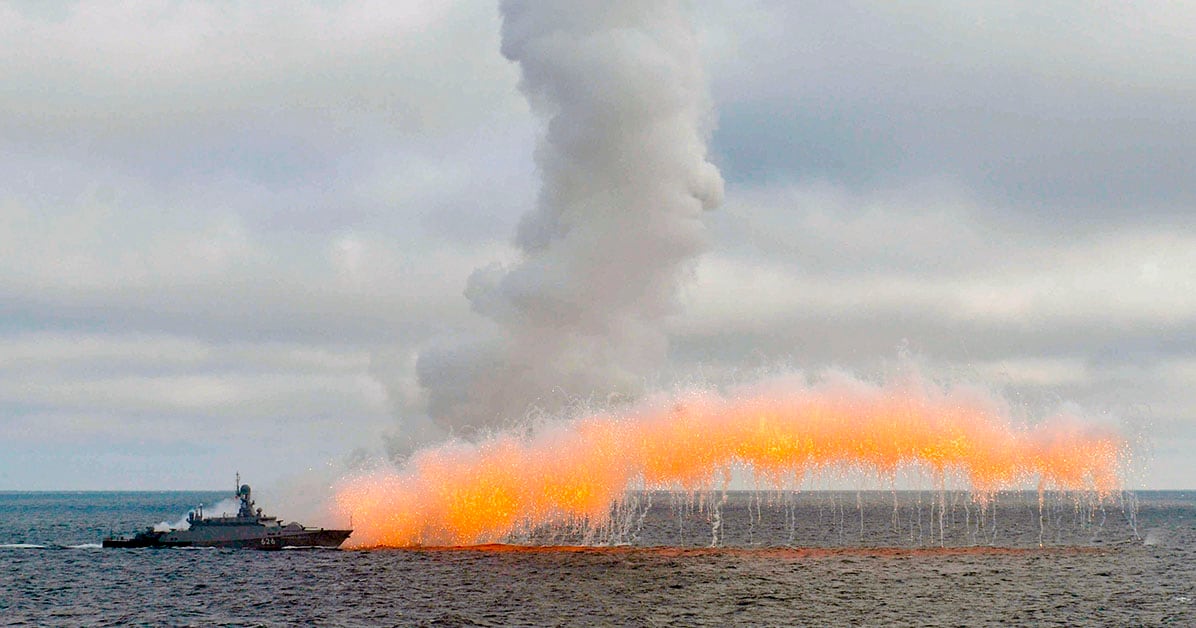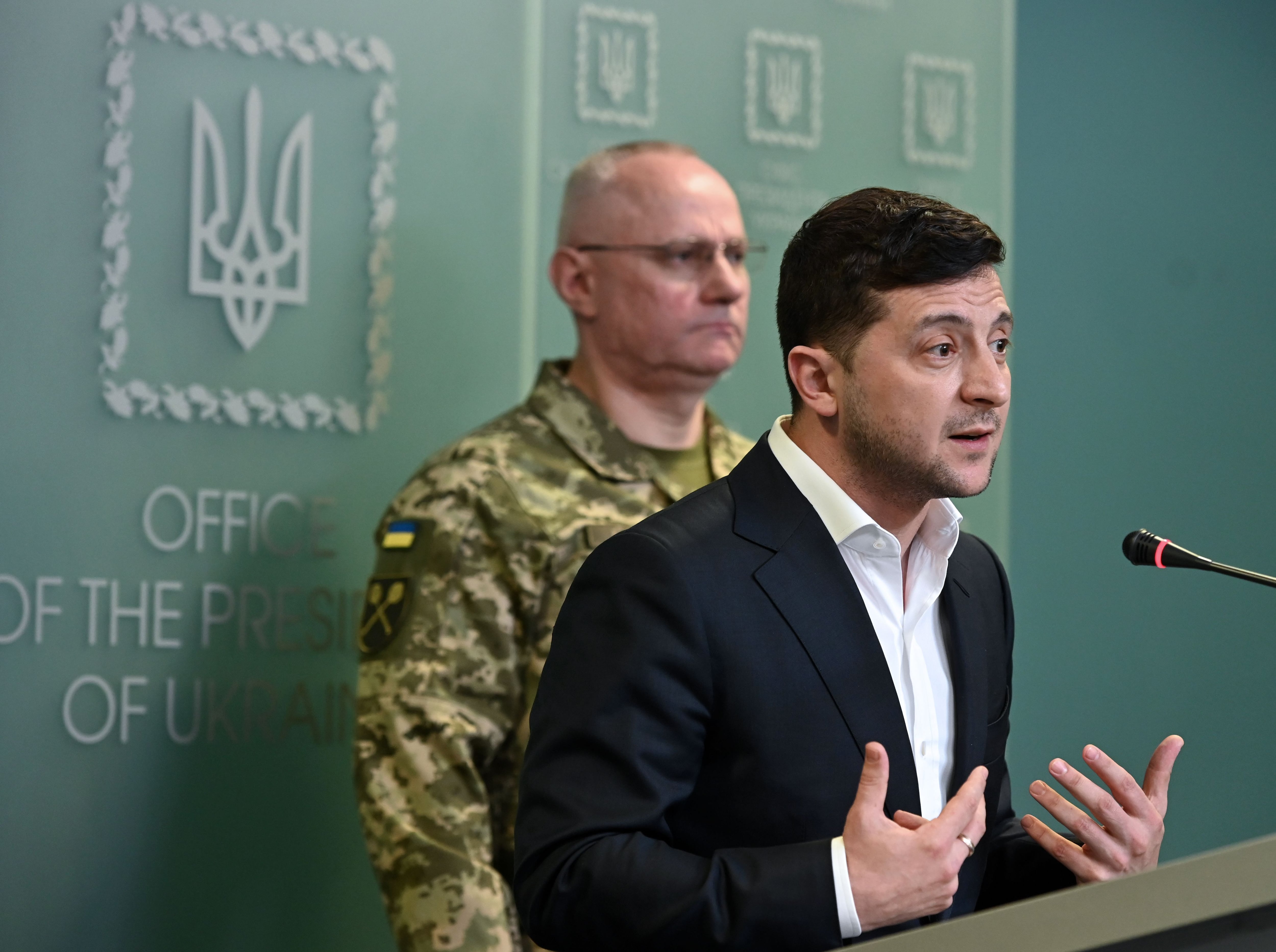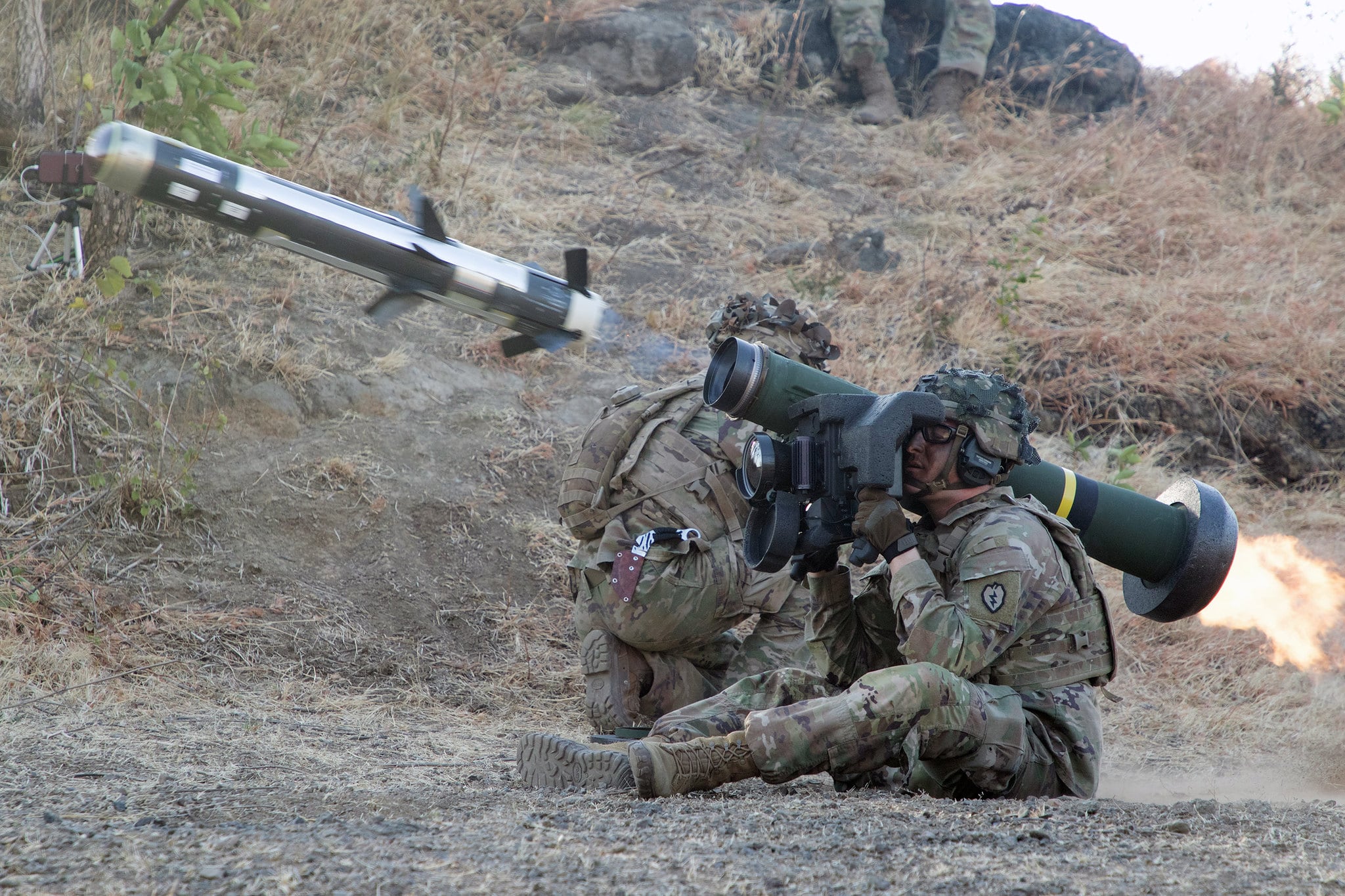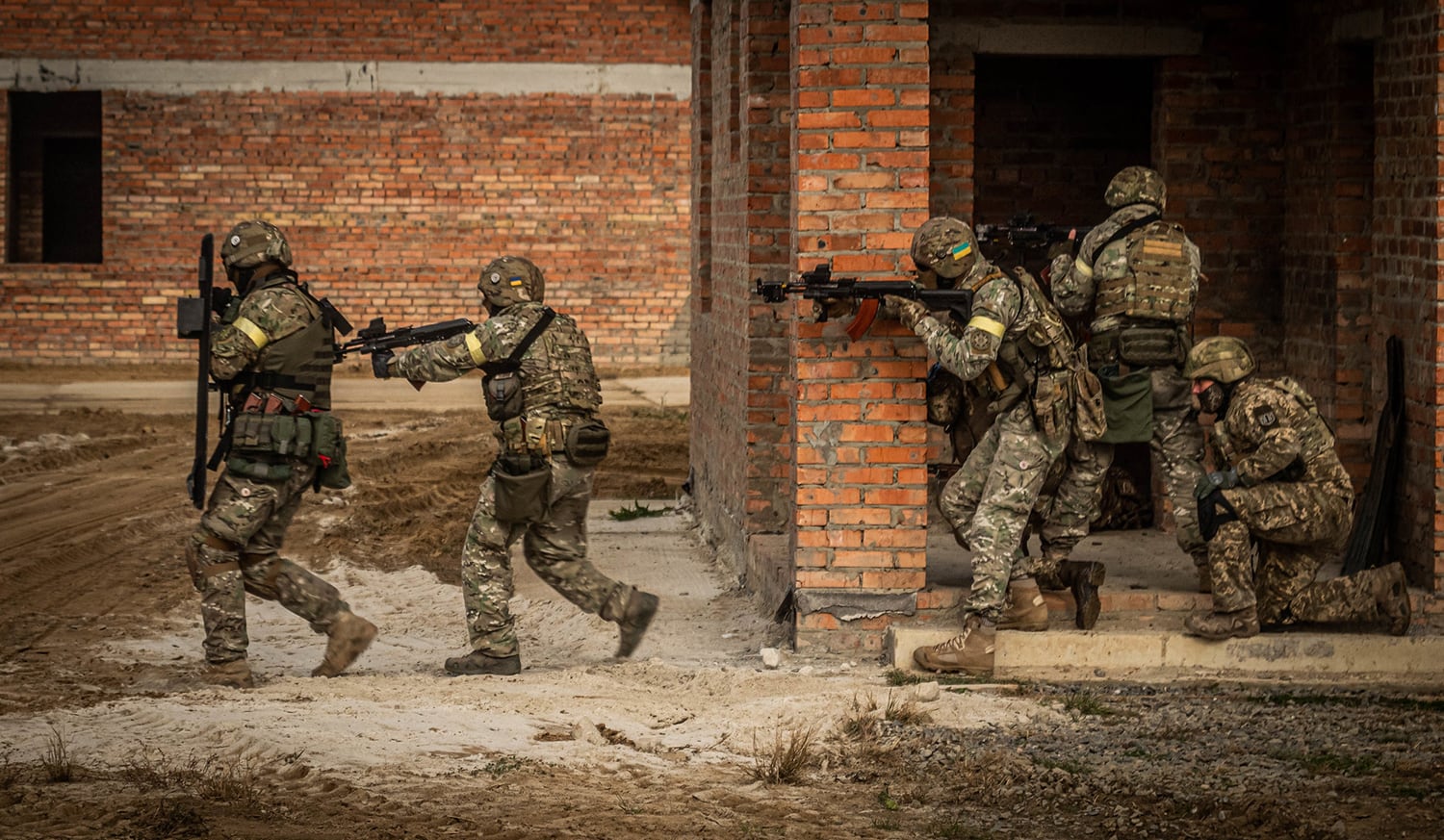Volodymyr Yelchenko, the Ukrainian ambassador to the United States, said there are many reasons the U.S. should care about the conflict in Ukraine.
There are “plenty of military lessons” for the U.S. in Ukraine, which is now into its sixth year of a Russian invasion that has cost more than 14.000 Ukrainian lives and displaced millions, Yelchenko said in an exclusive interview with Military Times during a break in Thursday’s “US-Ukraine Security Dialogue XI” held at the National Press Club in Washington.
“This is real war going on in the middle of Europe and this experience is different from Syria or Afghanistan or Iraq, so this is probably something which the U.S. military doesn’t have experience with.”
Yelchenko said he has heard from people inside the Pentagon that “they really enjoy learning from Ukrainians, who are on the front line, about their own experience. I think this is very valuable” for the U.S. military.
The “full spectrum” of Russian military doctrine has been on display in Ukraine since the Russians took over the Crimea in 2014 and are engaged in ongoing bloodshed, assisting rebels in the east.

That doctrine includes the use of conventional forces like mechanized infantry backed by armor and artillery, special operations forces, assassination and bombings, electronic warfare, cyber attacks, and the weaponization of information. It is a combination of efforts often referred to as “hybrid warfare.”
In November 2018, the Russian Coast Guard captured three Ukrainian Navy vessels, along with 24 sailors, in the Kerch Strait. The sailors were returned in a controversial prisoner swap last year.
Michael Carpenter, a former deputy assistant defense secretary responsible for Russia, Ukraine, Eurasia and the Baltics, offered a take similar to Yelchenko’s.
“We learn more from how Ukrainians fight this hybrid warfare with the Russians than we do through any other means,” said Carpenter, a speaker at the same forum, in an interview with Military Times.
“And so in terms of how Russia uses electronic warfare, how they use artillery systems, how they do reconnaissance, how they use their special operations forces, all of this is of very high value to not just our intelligence community, but to our military, in terms of understanding what we need to do to prepare in the event that we’re either facing Russian proxy forces, in some theater of war, say in the Middle East or elsewhere, or in the event that a NATO ally is engaged with Russian forces directly.”
Weapons wish list
To counter the Russians, Yelchenko and his immediate predecessor, Valeriy Chaly, offered Military Times a wish-list of weapons systems that they would like from the U.S.
RELATED

At the top of the list are Patriot anti-missile systems, both men said. The two, however, differ on the feasibility of Ukraine actually receiving them.
“Ideally, of course, we dream to have the Patriot system but it's too expensive,” said Yelchenko. “To cover Ukraine, we probably need four to six, which is billions of dollars.”
Chaly, now chairman of the Ukraine Crisis Media Center, says “we can buy immediately a system like Patriot.”
That is, of course, if the U.S. would be willing to sell such a system, which would be a far bigger ask than anything else the Ukrainians have requested.
“We understand this political decision,” said Chaly. “Turkey is now discussing this with the United States, but Ukraine also needs such a system. And I can say even more. Ukraine is seriously considering spending our money for it if we have such an opportunity to buy a Patriot system.”
Included in recent European Defense Initiative funding is $250 million that the U.S. Congress authorized for the Ukraine Security Assistance Initiative, which can be used to replace any “weapons or defensive articles” provided to Ukraine by the U.S. government. Such funding became a flashpoint in 2019, eventually becoming a central issue in the impeachment of President Donald Trump, who was acquitted in the Senate.
Among other items the Ukrainians would like are more Island-class patrol boats. Lots more.
“It is not my opinion, this is what our defense ministry and navy are saying all the time that to at least be able to contain the Russia’s movements in the Black Sea, we need like between 30 to 40 Island- type ships,” said Yelchenko.
There’s a long way to go for that wish to be fulfilled.
“As you may know, there were two of those delivered to train last year,” said Yelchenko. “And there are three (coming) in July. So we're talking about five ships in two years, but we need 30 minimum. “
But wait, there’s more.

Ukraine wants “even smaller things “ like more Javelin anti-tank weapons, sniper rifles and grenade launchers, said Yelchenko. The weapons were among the long-sought-after lethal aid finally delivered by the Trump administration.
“All of this is very effective on the front lines,” he said.
The Javelins “were a game-changer” when they first came on line for the Ukrainians in 2018, said Chaly, forcing Russian tanks to back off to avoid being blown up.
Carpenter, the former Pentagon official who now serves as the Senior Director of the Penn Biden Center for Diplomacy and Global Engagement, offered up a long list of weapons systems Ukraine needs.
Everything from mobile air defense systems like shoulder-fired missiles to increased naval capabilities.
“They also need naval capabilities because the Ukrainian littoral is practically undefended,” he said. “So that means small craft, and maneuverable tactical boats that have some sort of anti-ship capabilities. Not necessarily medium- or long-range but short-range, and a coastal sort of defense system to include … radars, and then also ground-based anti-ship missiles. “
Communications and command-and-control technology continues to be an important need, said Carpenter.
“We’ve already given the Ukrainians quite a bit of equipment, Harris radios being the prime example. But they certainly need more of it. Because those systems wear out there. They simply don’t have enough. “
Military medical equipment also remains an ongoing need, Carpenter said. Mobility assets, just basic armor, trucks and vehicles, continue to be important, he said.
But it is one thing to have weapons, Carpenter pointed out. Using them is something else altogether.
“Now, your readers will probably ask, ‘well, what about Javelin missiles?’” he said. “I think Ukraine may need some more Javelin missiles, but the most important thing is not necessarily to get more missiles. But to have them deployed on the front lines right now. Most of them are warehoused in western Ukraine, where they have no deterrent effect. So rather than sell more of these very expensive anti-tank systems, I would just take what they have and put them on the front lines and that’d be far more effective.”
Changes in Kyiv
Making a challenging situation even more complicated, Ukraine President Volodymyr Zelensky swapped out nearly his entire cabinet earlier this week. The shakeup included former Defense Minister Andriy Zahorodnyuk, who was replaced by Andriy Taran, a career soldier who had worked as a military attache to Ukraine’s embassy in the United States according to hromadske.ua.
And while it is too early to say what that will mean for future U.S.-Ukraine military relations, it is at least “very, very disappointing to see some very accomplished defense professionals, like the previous minister of defense up until today, now being removed from their posts for no apparent reason,” Carpenter said.
“That is a huge cause for concern because these are people we trusted, who were really driving deep reforms in the Ukrainian military, along the lines of what we had agreed with, with the Ukrainian government over the course the last five years, and as enshrined in their own strategic defense bulletin. And to now see some of these personalities removed is, as I said, cause for concern, without necessarily casting aspersions.”
Asked whether he thinks the Pentagon is concerned, Carpenter said, “I’m sure they are. I mean, it’s a lot of the same people there who work on these issues as when I was at the Pentagon, so I’m sure they are.”
Still, Carpenter said: “Let’s give them the benefit of the doubt. Let’s see what his plan is when [Taran] comes into office. And what he says. But, I just know that he’s of a different generation. I hope the best and I wish him luck.”
The Pentagon did not return a message seeking comment about the Ukraine defense ministry changes.
Howard Altman is an award-winning editor and reporter who was previously the military reporter for the Tampa Bay Times and before that the Tampa Tribune, where he covered USCENTCOM, USSOCOM and SOF writ large among many other topics.




